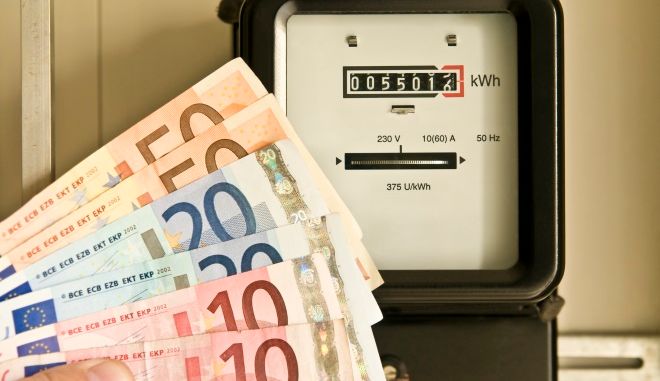If an electric car is on your mind, understanding its charging time is essential. Charging time is pivotal in determining the convenience and practicality of EVs for everyday use. Understanding the variables that influence charging duration is essential for both current and prospective EV owners.

Fortunately, you've come to the right place.
In this article, we'll delve into the key factors that affect EV charging speed.
So, let's get started.
Factors Affecting Charging Time
Battery Capacity
The size of an EV’s battery is a primary determinant of how long it takes to charge. Larger batteries hold more energy, which typically translates to longer charging times. Conversely, smaller batteries charge more quickly but offer reduced driving ranges.
State of Charge
The battery's state of charge (SOC) also plays a significant role. Charging a battery from 20% to 80% is generally faster than charging it from 80% to 100%, due to the way battery chemistry works. As the battery nears full capacity, the charging rate slows down to prevent overheating and prolong battery life.
Charging Equipment
The type of charging equipment used is another crucial factor. Different chargers provide varying levels of power, which directly impacts the time required to replenish an EV’s battery. High-powered chargers can significantly reduce charging duration compared to standard home outlets.
Types of Electric Vehicle Chargers
Level 1 Chargers (up to 3.6 kW, AC)
Level 1 chargers use a standard household outlet and provide the slowest charging speeds. Typically, these chargers deliver around 2-5 miles of range per hour of charging, making them suitable for overnight charging or low-mileage daily commutes.
Level 2 Chargers (up to 22 kW, AC)
Level 2 chargers are more powerful and often found in homes, workplaces, and public charging stations. They use a 240-volt outlet and can provide 10-60 miles of range per hour of charging, depending on the vehicle and charger specifications.
Level 3 DC Fast Chargers (up to 350 kW, DC)
DC fast chargers are the quickest option available, delivering high power directly to the battery. These chargers can provide 60-200 miles of range in just 20-30 minutes, making them ideal for long-distance travel and quick top-ups.

Understanding Charging Levels
Home Charging
Home charging is the most convenient option for many EV owners. With either a Level 1 or Level 2 charger installed at home, drivers can charge their vehicles overnight, ensuring a full battery each morning.
Public Charging
Public charging stations provide more flexibility, allowing EV drivers to recharge their batteries while on the go. These stations typically offer Level 2 or DC fast charging options, catering to different needs and locations.
Rapid Charging Stations
Rapid charging stations, equipped with DC fast chargers, are strategically placed along highways and major routes. They enable EV owners to quickly recharge during long journeys, minimizing downtime and enhancing the practicality of electric travel.
Optimizing Charging Efficiency
Preconditioning the Battery
Preconditioning involves warming or cooling the battery to an optimal temperature before charging. This process can enhance charging speed and efficiency, particularly in extreme weather conditions, by ensuring the battery operates within its ideal thermal range.
Managing Charging Sessions
Strategically managing charging sessions can help optimize efficiency. Charging during off-peak hours, avoiding frequent fast charges, and maintaining moderate SOC levels can extend battery life and improve overall charging performance.
Utilizing Smart Charging Solutions
Smart charging solutions use software to optimize charging times and power levels. These systems can automatically adjust charging based on grid demand, electricity prices, and user preferences, maximizing convenience and cost savings.
Where Can You Find a High-Quality EV Charger?
Finding a high-quality EV charger is essential for ensuring efficient and reliable charging for your electric vehicle. Here are some key places where you can find them:
Automobile Dealerships
Many automobile dealerships now offer EV chargers tailored to the vehicles they sell. These chargers are often compatible with specific models and are recommended by the manufacturer.
Online Retailers
Websites like Amazon, Best Buy, and dedicated EV supply stores offer a wide range of EV chargers. You can compare different models, read customer reviews, and find chargers that meet your specific needs in terms of charging speed, compatibility, and features.
Electricians and Electrical Contractors
Hiring a qualified electrician or electrical contractor can ensure proper installation of an EV charger at your home or business. They can also recommend high-quality chargers and handle the installation process professionally.
Manufacturer Websites
Directly purchasing from the manufacturer's website ensures that you get an authentic product with manufacturer warranty and support. Many EV manufacturers offer chargers that are specifically designed for their vehicles.
EV Charging Station Installers
Companies that specialize in installing EV charging stations may also sell high-quality EV chargers. They can provide recommendations based on your specific charging needs and install the charger for you.
When choosing a high-quality EV charger, consider factors such as charging speed, compatibility with your vehicle, safety certifications, warranty coverage, and additional features like smart connectivity. Researching and comparing options from reputable sources will help you find the best charger for your electric vehicle.
Final Words
In summary, knowing the charging time for electric vehicles is essential for current and prospective EV owners. The factors mentioned above provide valuable insights into what to consider when evaluating EV charging speed. Regardless of whether you charge at home, at work, or on the go, choosing the appropriate charger and optimizing your charging practices can enhance your electric vehicle experience.




